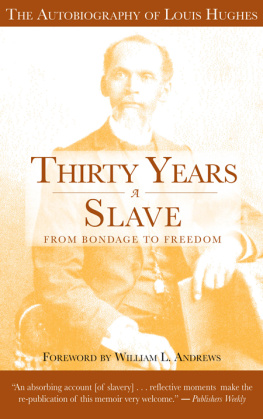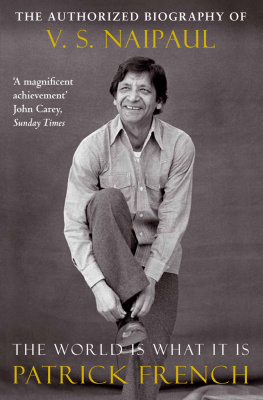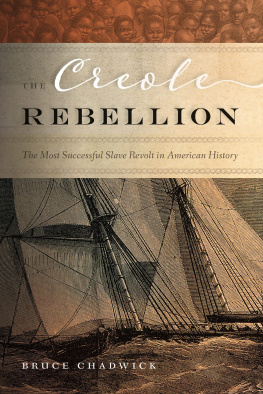Table of Contents
Guide
About the Translator
Linda Coverdale has a PhD in French Studies and has translated more than eighty books. A Chevalier de lOrdre des Arts et des Lettres, she has won the 2004 International IMPAC Dublin Literary Award, the 2006 Scott Moncrieff Prize, and the 1997 and 2008 French-American Foundation Translation Prize.
About the Author
Born in Martinique, Patrick Chamoiseau is the author of twelve novels, including Solibo magnifique, Chronique des sept misres, and Texaco, which won the Prix Goncourt, was named a New York Times Notable Book of the Year, and has been translated into fourteen languages. He is one of the founding theoreticians of the Crolit movement.
Celebrating 25 Years of Independent Publishing
Thank you for reading this book published by The New Press. The New Press is a nonprofit, public interest publisher celebrating its twenty-fifth anniversary in 2017. New Press books and authors play a crucial role in sparking conversations about the key political and social issues of our day.
We hope you enjoyed this book and that you will stay in touch with The New Press. Here are a few ways to stay up to date with our books, events, and the issues we cover:
Sign up at www.thenewpress.com/subscribe to receive updates on New Press authors and issues and to be notified about local events
Like us on Facebook: www.facebook.com/newpressbooks
Follow us on Twitter: www.twitter.com/thenewpress
Please consider buying New Press books for yourself; for friends and family; or to donate to schools, libraries, community centers, prison libraries, and other organizations involved with the issues our authors write about.
The New Press is a 501(c)(3) nonprofit organization. You can also support our work with a tax-deductible gift by visiting www.thenewpress.com/donate.
There is, before the cabin, an old man who knows nothing of poetry and in whom the voice alone resists. Grizzled hair on his black head, he bears in the mle of lands, in the two histories, before-land and here-land, the pure and stubborn power of a root. He endures, he treads the fallow land that yields not. (His are the deeps, the possibilities of the voice!) I have seen his eyes, I have seen his wild lost eyes seeking the space of the world.
Immobile dream of bones,
of what was, is no more,
and yet persists in the foundation of an awakening.
Touch,
folio I
In slavery times in the sugar isles, once there was an old black man, a vieux-ngre, without misbehaves or gros-saut orneriness or showy ways. He was a lover of silence, taster of solitude. A mineral of motionless patiences. Inexhaustible bamboo. He was said to be rugged like a land in the South or the bark of a more-than-millennial tree. Even so, Word gives us to understand that he blazed up abruptly in a beautiful bonfire of life.
Stories of slavery do not interest us much. Literature rarely holds forth on this subject. However, here, bitter lands of sugar, we feel overwhelmed by this knot of memories that sours us with forgettings and shrieking specters. Whenever our speech wants to take shape, it turns toward remembrance, as if drawn to a wellspring of still-wavering waters for which we yearn with an unquenchable thirst. Thus did the story of that slave old man make its way to me. A history greatly furrowed by variant stories, in songs in the Creole tongue, wordplay in the French tongue. Only multiplying memories could follow such a tanglement. Here, careful with my words, I can proceed only in a light rhythm, floating on those other musics.
When this story gets under way, everyone knows that this slave old man will soon die. This conviction is based on no evidence at all. He is still vigorous and seems like an indestructible mineral, something djok-strong. His eyes are neither shining nor dull but dense, like certain backwaters struck by lightning. His speech keeps itself more elusive than echoes off a surfside cliff (and as inaccessible of meaning). He subjects his cabin to the maniacal housecleaning of the elderly, and his survival garden, scraped out beneath the trees, is a fine example of a fight against famine. So, nothing. Nothing suggests that his end is near except his incalculable age, which even the ancientest ledgers of the Plantation could not guarantee. The most wizened elders cannot remember the day of his birth, and no one still alive tasted the feasts at his baptism. Therefore, all are obscurely aware that his quarter hour upon this earth (that brief allotted span) has unraveled its last bit.
The Plantation lies in the north of the country, between the flank of a volcanic mountain and thick woodswoods of dark ravines bristling with the ruins of a forgotten time, woods of symphonic streams among the mosaics of rocks, woods of singing trees, peopled by opaline diablesses* summoned in a riotous crowd by late-night storytelling into the audience-circle of fears. Sugarcane fields surround the Plantation, then go off to softly carpet the sea swell of humpbacked hills called mornes. Up there, they blur into the mists of the heights, glittering like molten metal. Down below, against the wall of woods, they end clumsily in a seething of muddy straw.
The Plantation possesses one hundred and sixty-seven slaves, women and youngsters included. Two mulatto commandeurs oversee the daily operations. The property belongs to a Matre-bk* whose family name boasts a nobiliary particle. He clothes his absolute power in white linen, and a pith helmet gives him the allure of a conquistador fallen from a fold in time. He makes his inspections astride a chestnut Arabian horse given in exchange for rocky land by some shipwrecked Poles anxious to anchor their exile in a scrap of soil. The Masters wife and four children scrape by amid the mahogany redolence of the Great House, in the shadow of his unpredictable rages. His boys are pale and peevish; his daughter grows long honey-blond hair and flutters her lashes over staring eyes; his Lady amuses herself now and then with an ugly theatrical laugh that accents her mute melancholy. In his rare moments of leisure, and after Sunday vespers, the father fondles a formidable mastiff* used to hunt down foolhardy foubins who flee from servitude. No one has managed yet to foil the terrifying tracking of the animal. The Master doubtless adores it for that reason. The sudden sunshine of his smile breaks through only for this beast. And when, on his veranda, he saws away on a mother-of-pearl-inlaid mandolin, the mastiff sighs like an odalisque. The slaves in that area and those of the Plantation, as far away as they may be, give way to helpless gooseflesh at hearing that vile melody.
The Plantation is small, but each link among its memories vanishes into the ashes of time. The bite of the chains. The rwasch of the whip. The rending cries. Explosive deaths. Starvations. Murderous fatigues. Exiles. Deportations of different peoples forced to live together without the laws and moralities of the Old-world. All of that quickly muddles, for those gathered there, the rippling of recollections and the depth-sounding of dreams. In their flesh, their spirit, subsists only a calalou-gumbo of rotting remembrance and stagnant time, untouched by any clock.
Since the arrival of the colonists, this island has become a magma of earth fire water and winds stirred up by the hunger for spices. Many souls have melted away there. The Amerindians of the first times turned themselves into writhing vines of suffering that strangle the trees and stream over the cliffs, like the unappeased blood of their own genocide.* The slave ships of the second times have brought in black Africans fated to bondage in the cane fields. Only, it wasnt people the slavers began selling to the
Next page








